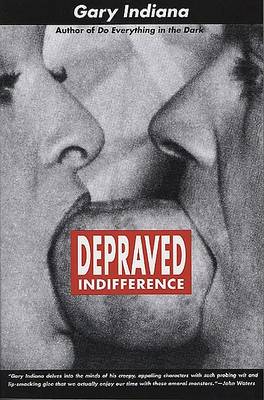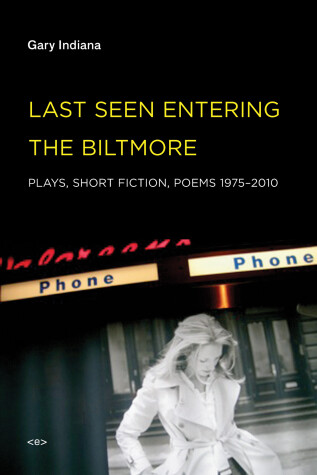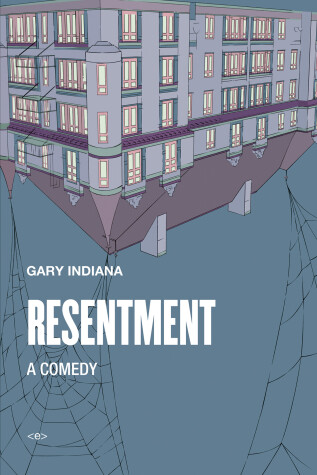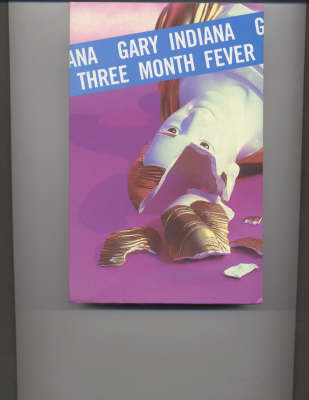Semiotext(e) / Native Agents
4 total works
Until her conviction on slavery charges brought against her by several ungrateful Mexican housemaids, Evangeline, a dead ringer for Elizabeth Taylor, lives in perpetual motion. She and her husband, Warren, a self-made real estate mogul at the end of a long alcoholic decline, breezily shift from Las Vegas to Hawaii to Nassau, torching their homes for insurance money, dabbling in myriad forms of financial fraud, and constantly altering their identities to evade the law.
When Warren dies, Evangeline is desperate to jump-start yet another new life, bankrolled by Warren's far-flung and hard-to-locate assets, while keeping his death secret from the world at large, but particularly from his "former children," her stepchildren and the beneficiaries of his will. Fortunately, she has an eager accomplice in Devin, her fanatically devoted and easily manipulated son.
Surrounded by a cohort of burnouts, hapless suckers, and fellow grifters, Evangeline cooks up the ultimate con. To complete the intricate scheme, she will stop at nothing, including murder.
"Depraved Indifference" is a dissection of the mind of a charismatic sociopath and a satire of the society that appeases and abets her. With razor-fine insight, Gary Indiana, "one of the most important chroniclers of the modern psyche," ("The Guardian") wields his scathing, insightful prose with authority and to devastating effect.
Before publishing his celebrated first novel, Horse Crazy, in 1987, Gary Indiana wrote and directed twelve plays for an informal company whose performers included the painter Bill Rice, composer Evan Lurie, the poet George-Therese Dickenson, writer and film actress Cookie Mueller, Warhol superstar and painter Viva, writer Victoria Pedersen, singer/actress Sharon Niesp, photographer Allen Frame, the legendary Taylor Mead, novelist Larry Mitchell, and others. Performed at the Mudd Club, Club 57, The Performing Garage, and Bill Rice's E. 3rd Street studio, Indiana's plays offered a kind of community theater for New York's underground.
This volume presents highlights of that repertoire, including Alligator Girls Go to College, The Roman Polanski Story, and Indiana's script for Michel Auder's videofilm A Coupla White Faggots Sitting Around Talking, accompanied by archival performance photographs and selections from Indiana's contemporaneous journals and poems. These hilarious, incisive writings and scripts evoke a vivid and accurate portrait of writers and artists in the lower Manhattan of the 1980s—arguably America's last avant-garde—and anticipates Indiana's impressive subsequent literary career.
Originally published in 1997, Resentment was the first in Gary Indiana's now-classic trilogy (followed in 1999 by Three Month Fever: The Andrew Cunanan Story and in 2003 by Depraved Indifference) chronicling the more-or-less permanent state of “depraved indifference” that characterized American life at the millennium's end.
In Resentment, Seth, a New York–based writer arrives in Los Angeles (where he has history and friends) in mid-August, 1994, to observe what will become the marathon parricide trial of the wealthy, athletic, and troubled Martinez brothers, broadcast live every day on Court TV. Still reeling from the end of his obsessive courtship of a young SoHo artist/waiter, Seth moves between a room at the Chateau Marmont and a Mount Washington shack owned by his old cab-driving, ex-Marxist friend, Jack, while he writes a profile of Teddy Wade—one of the era's hottest young actors, who has “dared” to star as a gay character in a new Hollywood film. Studded throughout with scathing satirical portraits of media figures, other writers, and the Martinez trial teams, Resentment captures an era that seems, two decades later, at once grotesque, familiar, and a precursor to our own.
It was suddenly chic to be "targeted" by Andrew.... It also became chic to claim a deep personal friendship with Versace, to infer that one might, but for a trick of fate, have been with Versace at the very moment of his "assassination," as it had once been chic to reveal one's invitation to Cielo Drive in the evening of the Tate slayings, an invitation only declined because of car trouble or a previous engagement...
--from Three Month Fever
First published in 1999, Gary Indiana's Three Month Fever is the second volume of his famed crime trilogy, now being republished by Semiotext(e). (The first, Resentment, reissued in 2015, was set in a Menendez trial-era L.A.) In this brilliant and gripping hybrid of narrative and reflection, Indiana considers the way the media's hypercoverage transformed Andrew Cunanan's life "from the somewhat poignant and depressing but fairly ordinary thing it was into a narrative overripe with tabloid evil."
"America loves a successful sociopath," Indiana explains. This sardonic and artful reconstruction of the brief life of the party boy who became a media sensation for shooting Gianni Versace is a spellbinding fusion of journalism, social commentary, and novelistic projection. By following Cunanan's notorious "trail of death," Indiana creates a compelling portrait of a brilliant, charismatic young man whose pathological lies made him feel more like other people--and more interesting than he actually was. Born in a working-class exurb of San Diego and educated at an elite private school, Cunanan strove to "blend in" with the upscale gay male scene in La Jolla. He ended up crazed and alone, eventually embarking on a three-month killing spree that took the lives of five men, including that of Versace, before killing himself in a Miami boathouse, leaving behind a range of unanswerable questions and unsolvable mysteries.
"Gary Indiana belongs to a special breed of American urban writers who take cool pleasure in dissecting the lives of the rich and ugly and is possibly the most jaded chronicler of them all. On a good day, he makes Bret Easton Ellis look like Enid Blyton, yet many, myself included, think he might have already written the Great America Novel(s)."
--Christopher Fowler, The Independent



